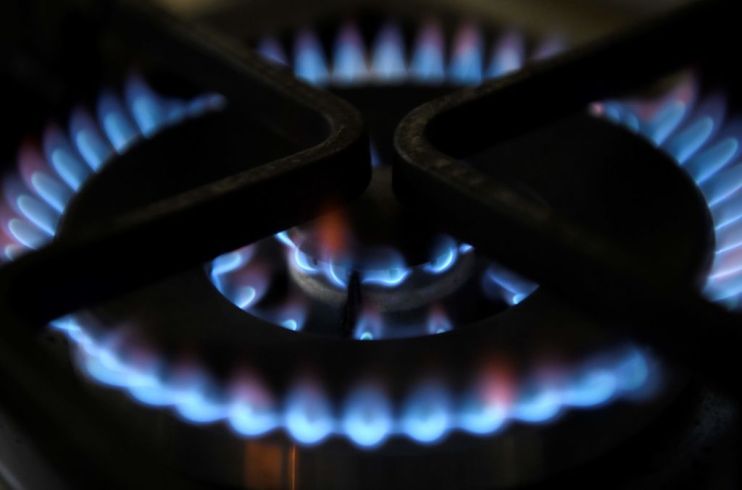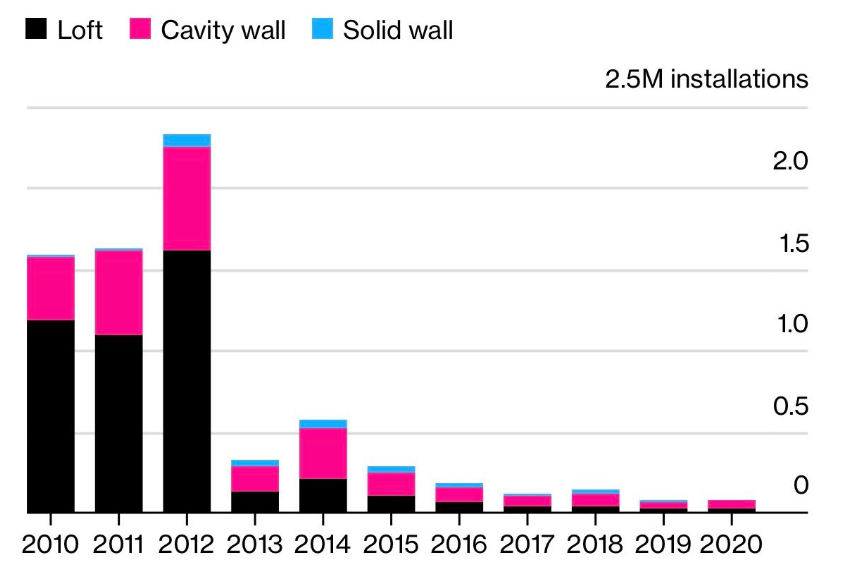Poorly insulated households to pay over £700 more on rising energy bills

Poorly insulated households will see their energy bills rise over £700 more than energy users living in more efficient properties, according to new research from B&Q and Screwfix owner Kingfisher.
The group compared potential hikes in households bills for houses with EPC ratings of D or below, compared to C and above – with A representing the most efficient households and F the least.
Households with a rating of D or below face an average energy bill increase of £1,730 per year in October compared to £982 per year with an EPC rating C or above.
This is based on Ofgem’s announcement that the energy price cap will rise 80 per cent to an eye-watering £3,549 per year for average use.
The research also revealed that while 60 per cent Brits said rising bills have made them more interested in energy efficiency, only 40 per cent knew their home’s EPC rating.
The biggest reasons cited for not making improvements were not being able to afford the upfront costs (34 per cent), not knowing enough about what the options are (33 per cent), not being sure if it’s worth the investment (30 per cent) and seeing it as too much hassle (27 per cent).

Just 44 per cent said they had heard of any of the current Government schemes to support energy efficiency while two thirds (66 per cent) believe the Government should be doing more.
Its research also found that rented properties are on average more energy efficient than owner-occupied homes.
However, 72 per cent of renters want their landlords to do more to improve the energy efficiency of their properties, while only one in five (20 per cent) said their landlords had made improvements in the past year.
It is unclear whether Foreign Secretary Liz Truss, who is widely expected to win the Conservative leadership race, is considering energy efficiency measures.
However, her rival former Chancellor Rishi Sunak has committed to boosting energy efficiency, and is considering shifting funds from the heat pump scheme to insulation measures.
The Government has invested £6.6bn in total this Parliament to improve energy efficiency across the country.
Last year, it unveiled the Heat and Buildings Strategy, setting out a decarbonisation plan for households alongside commercial, industrial and public sector buildings.
However, installation rates have dropped sharply in the past decade from over two million homes per year to just tens of thousands after former Prime Minister David Cameron slashed previous efficiency schemes – according to the Climate Change Committee.
The Energy and Climate Intelligence Unit revealed earlier this month that this will see around £1.5bn wasted on higher energy bills in the next financial year alone.
Five policy proposals to boost households
Kingfisher has suggested five policy ideas to improve the energy efficiency of UK homes.
This includes a new grant funding scheme for those on lower incomes to fund the installation of energy efficiency measures similar to schemes in France, alongside interest free or low interest loans for those more able to pay like those offered in Germany.
It has also called for VAT to be cut to zero on all energy efficiency products, not only those installed by tradespeople, and for reduced Stamp Duty for homebuyers who buy more energy efficient properties or install energy efficiency measures in the two years after they buy a new home.
Its fourth and fifth proposals are specific targets for the number of energy efficiency installations to be delivered nationwide per year and funded training for tradespeople to learn how to install energy efficiency measures.
Thierry Garnier, Kingfisher Chief Executive, said: “The UK’s housing stock is among the least energy-efficient in Europe, with UK homes losing heat up to three times faster than European neighbours. With a nearly £750 bills gap between the most and least energy efficient homes, and homes responsible for around 20 per cent of the UK’s emissions, tackling this challenge has never been more important.
Based on our experience working with governments in eight countries across Europe, we are proposing five practical policies that we believe would make a difference – helping households to cut both their energy bills and their emissions.”
The group believes this would help in the scaling up of new technologies such as heat pumps, and support across Government to bring more Trade Apprentices into the industry.
The research was undertaken in partnership with economics consultancy Cebr – surveying 2,000 UK adults who own or rent a property.